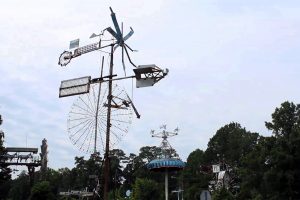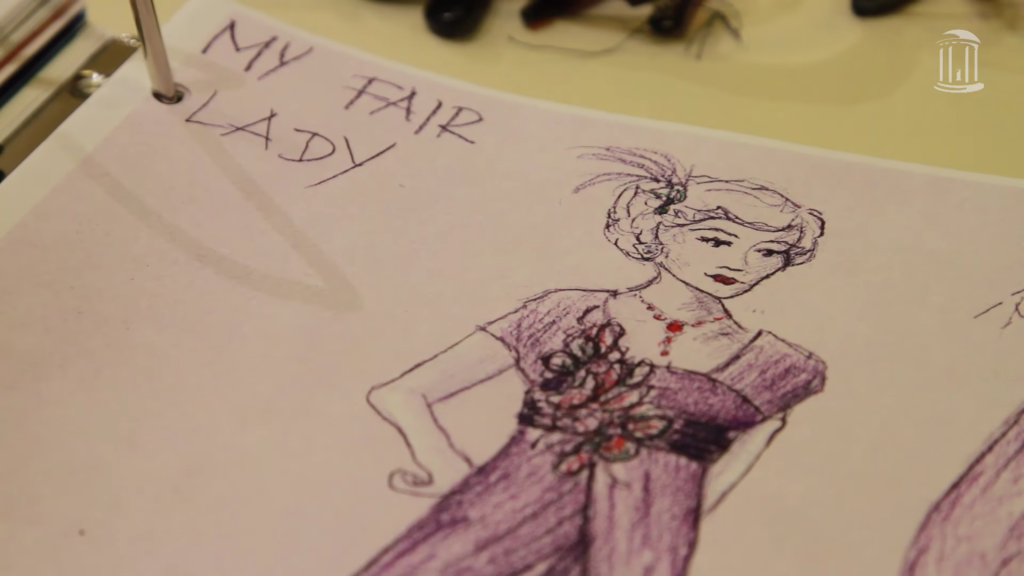
Whirligigs of the late North Carolina folk artist Vollis Simpson will be on display at the Hanes Art Center at the University of North Carolina at Chapel Hill Sept. 5 to Oct. 3.
An opening reception will be held Sept. 5 at 6 p.m. The free exhibition in the John and June Allcott Gallery is sponsored by the art department in UNC’s College of Arts and Sciences. Gallery hours are Monday through Friday, 8 a.m. to 5 p.m.
Visitors will see whirligigs from Simpson’s collection that range from table-top size to about 5 feet tall. Simpson’s larger-than-life whirligigs, originally located in a field beside his home in Wilson County, tower 50 feet or more above the ground.
Simpson died last June at the age of 94. His whirligigs are being taken down and restored, and will have a new home at the Vollis SimpsonWhirligig Park in downtown Wilson, which is expected to open in November. UNC alumni are involved in the restoration efforts.

After a lifetime of repairing machinery and moving houses, Simpson found himself at age 65 with spare time. Rather than “sit around and watch TV,” Simpson remembered a windmill he constructed during World War II and began to build. Using some of the same rigs he’d developed for moving houses, Simpson began constructing enormous windmills in his yard.
Close inspection of the twirling behemoths reveals an inventory of objects that serves as a catalog of the agricultural and industrial economic history of the second half of the 20th century. Highway and road signs, HVAC fans, bicycles, ceiling fans, mirrors, stovepipes, textile mill rollers and other things form the supports and moving parts for the whirligigs.
Read a fall 2012 story and watch a video about efforts to restore Simpson’s whirligigs.
More information: www.wilsonwhirligigpark.org and http://art.unc.edu.



